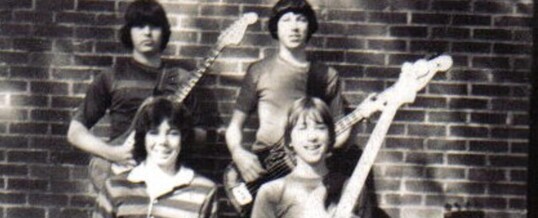
Before cable television, the Internet, and social media reshaped how we spend our free time, entertainment in the South during the 1960s and 70s was rooted in community, creativity, and the great outdoors. We filled our days and evenings with activities that cost little but created lasting memories, bound tightly to family, neighbors, and the rhythms of nature.
Church was the heartbeat of social life. We looked forward to revival meetings, choir practice, and youth group gatherings. One of the most anticipated events was “dinner on the grounds,” which everyone called “dinner,” even though it was the midday meal. Long tables groaned under the weight of fried chicken, homemade pies, and every side dish imaginable. These meals were more than a chance to eat; they were a time to catch up on news, swap recipes, and laugh together beneath the big oak trees.
Inside the house, we played board games that sparked plenty of friendly rivalries. Monopoly, Clue, and Scrabble turned rainy afternoons into loud, laughter-filled competitions. Card games like Rook and Spades kept minds sharp and conversations lively. These games taught patience, strategy, and how to be a good winner or loser without a glowing screen in sight.
Most days we preferred the outdoors. Kids raced through yards playing tag, Red Rover, and kick-the-can until the sun sank low. Bicycles carried us down gravel roads, and a simple rope swing over a creek provided hours of fun. Raising livestock and caring for pets also kept us busy and taught responsibility. Feeding chickens, brushing horses, or bottle-feeding a runt piglet was more than a chore. It was an introduction to life’s cycles and the rewards of hard work.
For quieter moments, book clubs and libraries opened new worlds. Adults discussed novels and poetry in living rooms while children swapped Hardy Boys and Nancy Drew mysteries. Reading was both an escape and social glue, inspiring debates and shared dreams.
In 1976, I joined my first rock band. Because of the Bicentennial, we called ourselves Freedom. We played exciting locations around town, such as the nursing home and my parents’ driveway.
Technology of a different kind connected us too. Citizens Band radios became a craze in the 70s, letting folks chat with truckers or distant neighbors late into the night. There was a thrill in hearing voices crackle over the airwaves from miles away. Boy Scouts and Girl Scouts added another layer of adventure. We learned to tie knots, navigate trails, and cook over an open fire, skills that came in handy for camping trips.
Camping was a favorite family pastime, whether in a tent or a makeshift camper shell on the back of my grandfather’s GMC pickup. Even a simple overnight in the backyard felt like an expedition. Sitting around the campfire, we roasted marshmallows, told ghost stories, and gazed at a starry sky unobstructed by city lights. The smell of wood smoke and the crackle of the fire created memories that still feel close decades later.
What tied all these activities together was a strong sense of community. We visited with neighbors on front porches, attended school plays, and joined in local fairs. Entertainment was not something you bought; it was something you made with others. We learned to create our own fun, whether by organizing a baseball game in a cow pasture or strumming guitars on the porch until the crickets started their nightly chorus.
Today glowing screens dominate attention. Many people spend hours scrolling through endless feeds, staring at a cellphone as if it holds the key to happiness. While technology connects us in some ways, it often isolates us from the simple joys of personal interaction and outdoor life. The Southern days of the 60s and 70s remind us that fulfillment does not come from the number of likes on a post but from shared meals, laughter around a fire, and the quiet contentment of a starry night.
We may not be able to turn back the clock, but we can reclaim some of that spirit by setting down the phone, stepping outside, and remembering how rich life can be when we create our own entertainment and share it with the people we love.
© 2025 John Moore
John’s, Puns for Groan People (a book of dad jokes); and two volumes about growing up in the South called, “Write of Passage,” are available at TheCountryWriter.com. John would like to hear from you at John@TheCountryWriter.com.
SEP
2025
